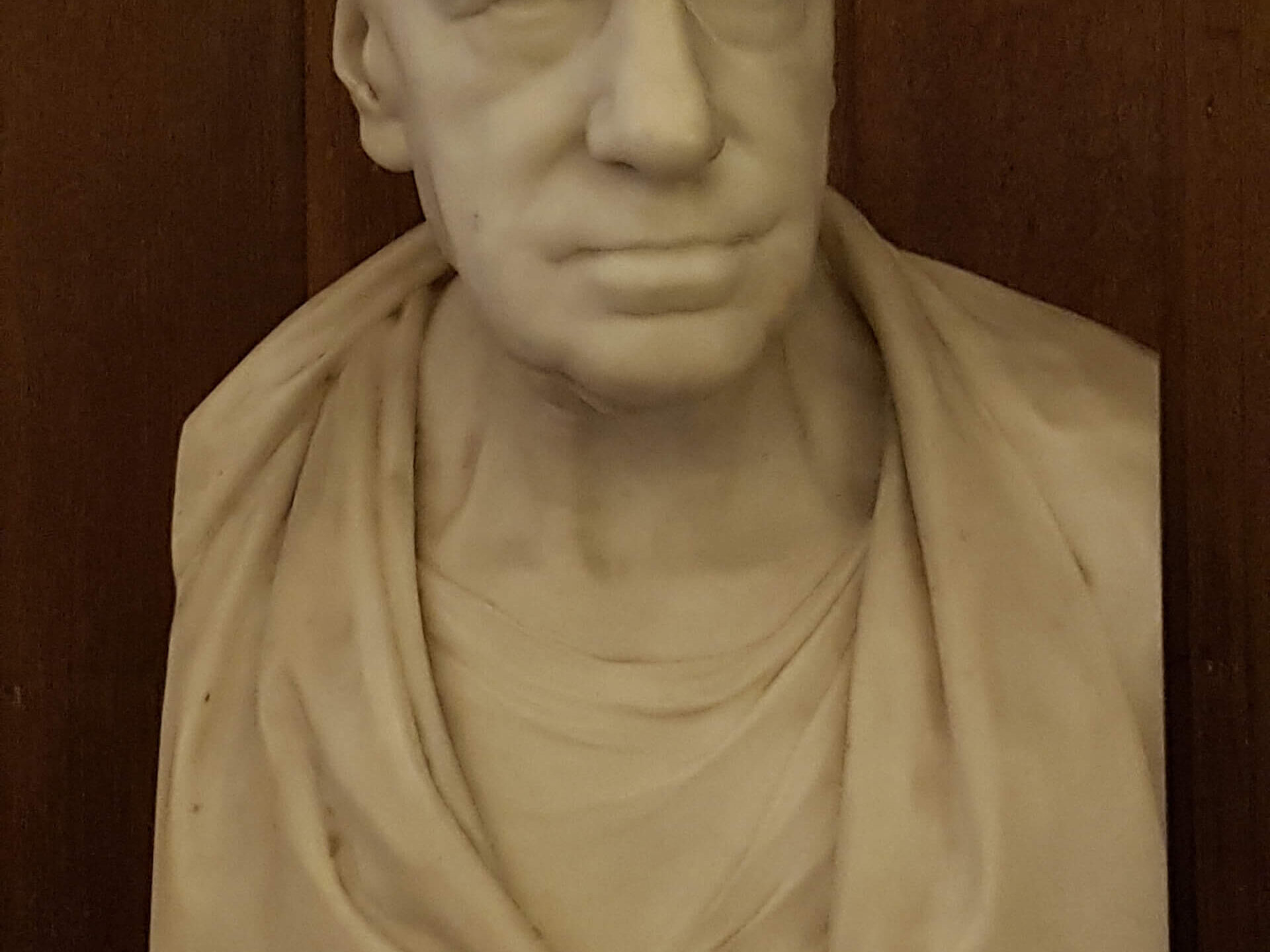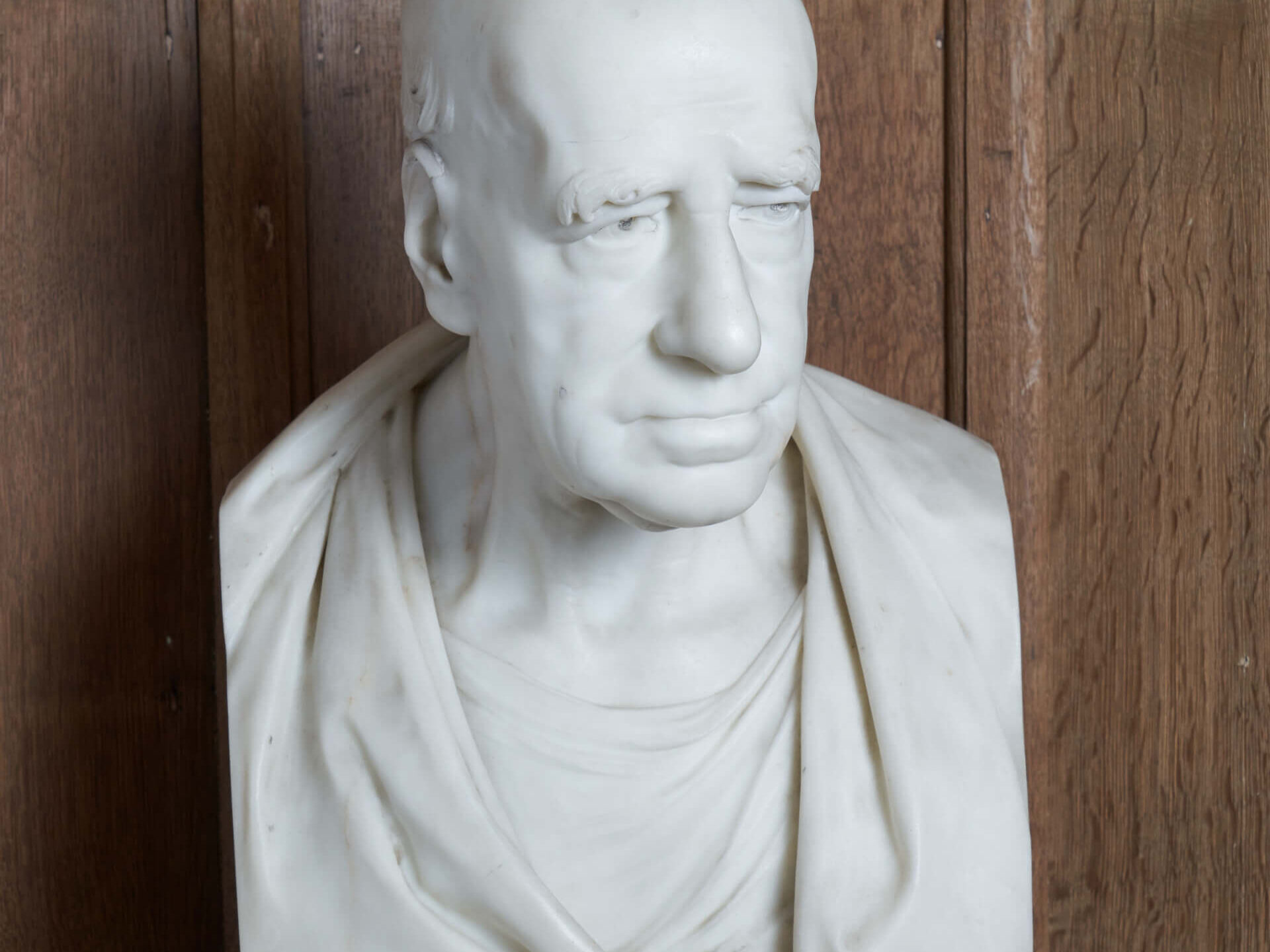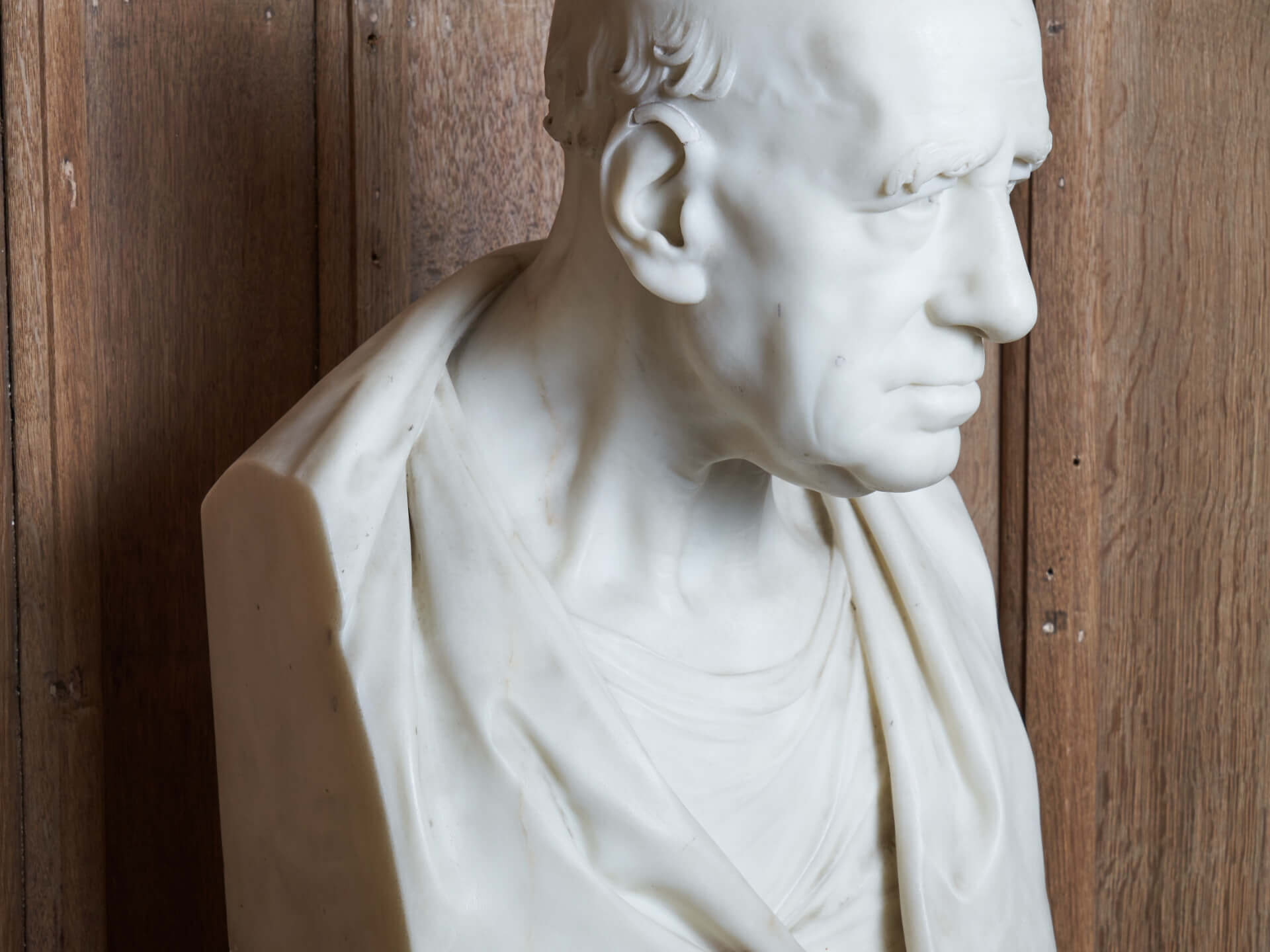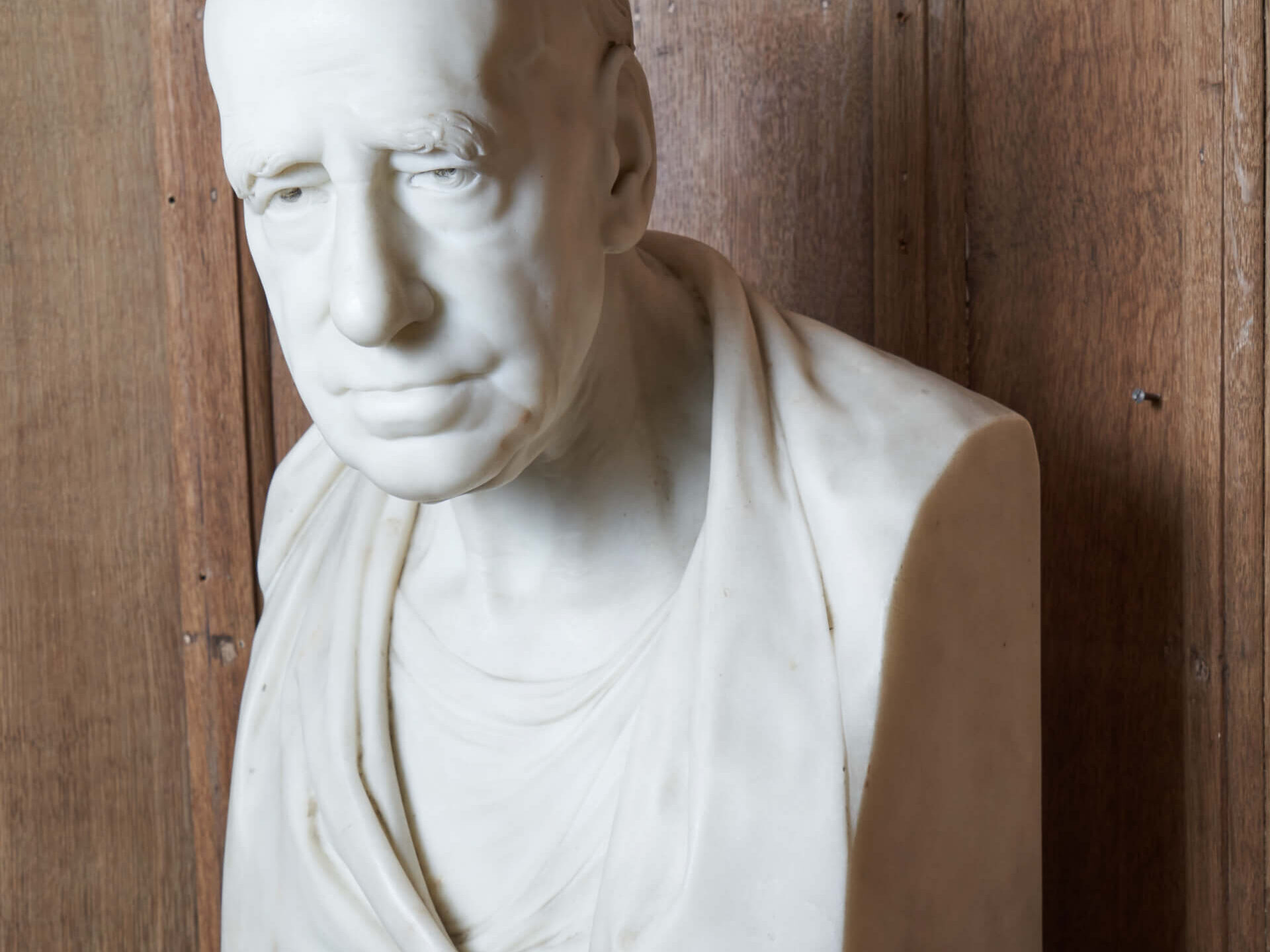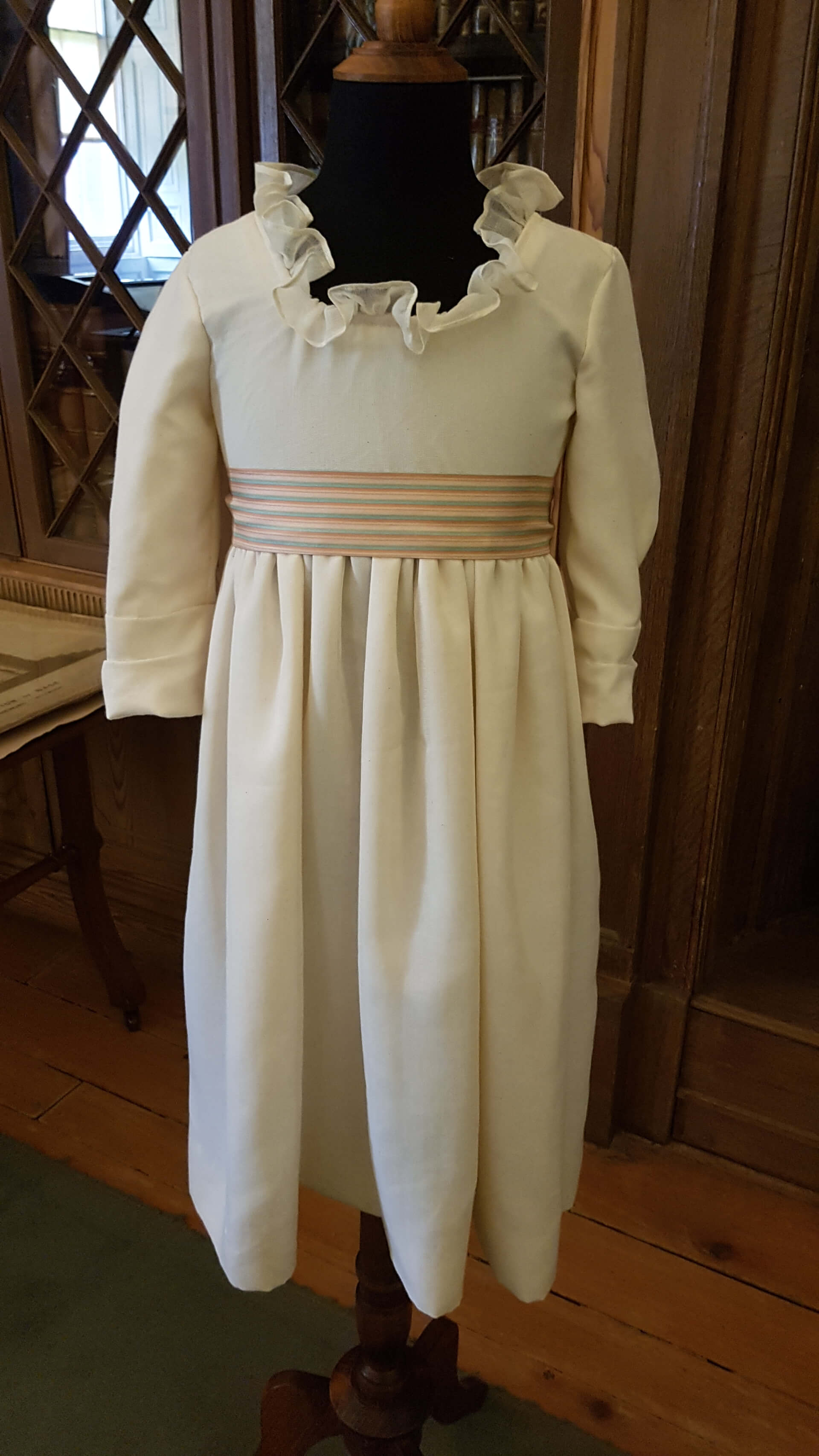George Home (1735-1820) Marble Bust
Description
George was an Edinburgh-based lawyer who, from 1781-1806, was Clerk to the Court of Session. Aged 61, in the early summer of 1795, George Home had confirmation that his elder brother, Ninian, had been killed in Grenada. With that news, he realised that he would not only inherit Waltham estate and all that survived on it in the middle of the Fédon Uprising, as well as Paxton House and around £25,000 of debts. George took a conscious decision, that to ‘…preserve Paxton for the family…’ (18 April 1796) he would re-build the Waltham estate.
From 1796/7, George expended thousands of pounds restoring Waltham which had been damaged during the Uprising. He later described that he purchased ‘a few slaves,’ immediately after the Uprising, but no others following that. (NRS GD267/5/36, p.29, 5 April 1813).
George was an absentee owner relying on Scottish managers and overseers to run the estate. George wrote to the manager of Waltham, John Fairbairn, very regularly; their correspondence survives in the family archives. Fairbairn had first been employed at Wedderburn Castle owned by Patrick Home, from the age of 10. Examples of what George and John wrote to each other follow:
In 1801, George was pleased to hear of the improved harvest of sugar:
‘…obtained without any injury to the stock [enslaved people]. I should regret if it had occasioned the [enslaved people] to be overworked, which I hope they never will be.’ (NRS GD267/7/3 pp.26-7, Sept. 1801).
What George or John classed as ‘overworked’ is not clear. However, George instructed his manager to hire a ‘task gang’ at a higher cost as need be for additional heavy work rather than use the existing workforce. (NRS GD267/7/3/pp.28 & 35, 1 & 31 October 1801).
In 1811, George referred to this again when writing to John Fairbairn, ‘…and that your [enslaved people] continue in good health, nothing can evince more strongly your care and attention to their health and comfort that while you do your duty to your employer you do not press those under you to exertions that are immediately hurtful to those for whose benefit those destructive exertions may be intended.’ (NRS GD267/5/35, pp.63-64, 3 October 1811).
‘…your care of the old and infirm is part of your duty which must be particularly grateful, as it must be grateful to every man to feel he has acted properly in a situation where he could be influenced by no selfish motive.’
(NRS GD267/5/35, pp.55-56, 2 March 1811).
